Single sign-on (SSO) using GSuite
XSplit's Team License Manager allows owners to set up Single sign-on (SSO) through GSuite to simplify the sign-in process for their domain license users.
Prerequisites
You will need the following to set up SSO with GSuite:
- The Manager role for your company's XSplit Team License. If you are not the owner of the domain license, the owner can enable this for your account.
- A verified domain in Team License Manager's domain settings.
- Administrator access on your company's GSuite instance.
1. Preparing SSO setup in XSplit Team License Manager
- Go to your Team License Manager dashboard by clicking on the Team License Manager link under My Account.
- Go to your Domain Settings by clicking on Domain License then Domain Settings.

- Select SAML as your Authentication method. Keep this tab open, as you’ll be using the information here to set up GSuite integration.
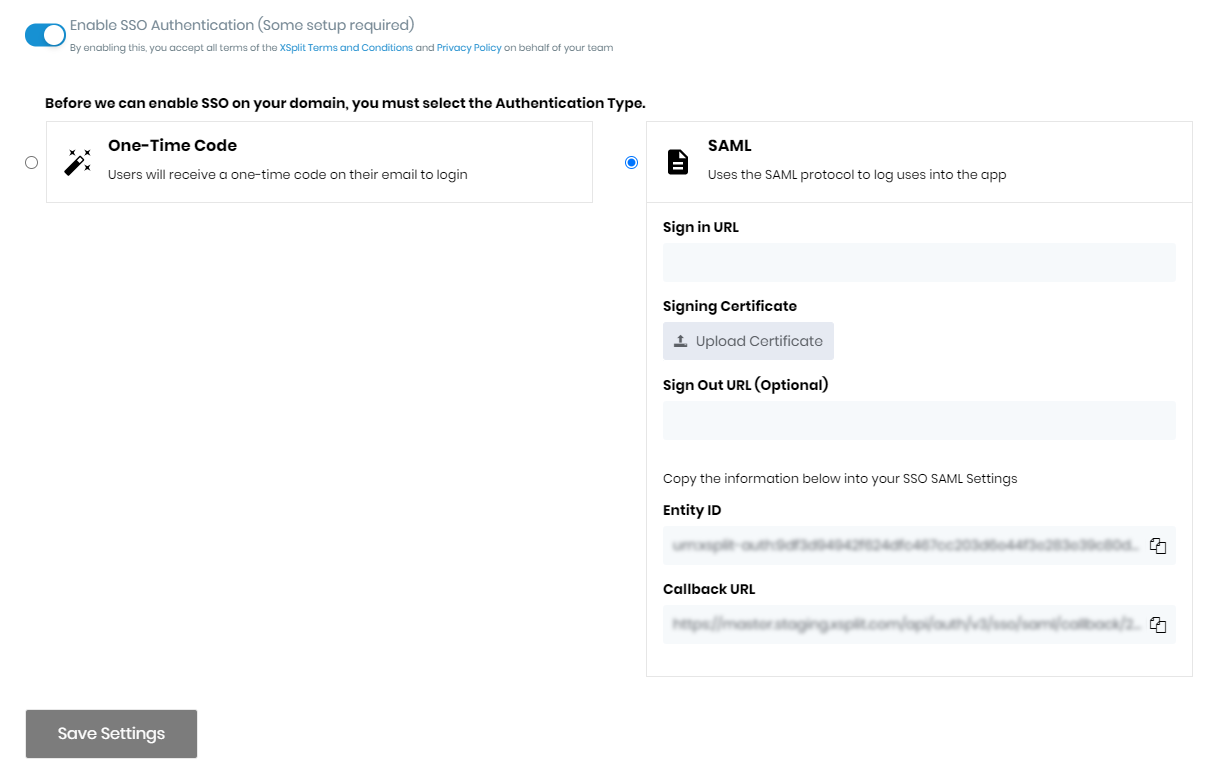
2. Adding the XSplit Application in GSuite
- Go to your GSuite admin portal then go to Apps then SAML apps.
- Click on Add App then select Add custom SAML app.
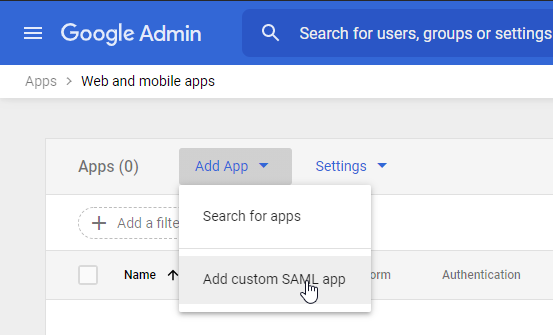
- Name the App
XSplitthen click Continue.
- Under Google Identity Provider details, in Option 2:
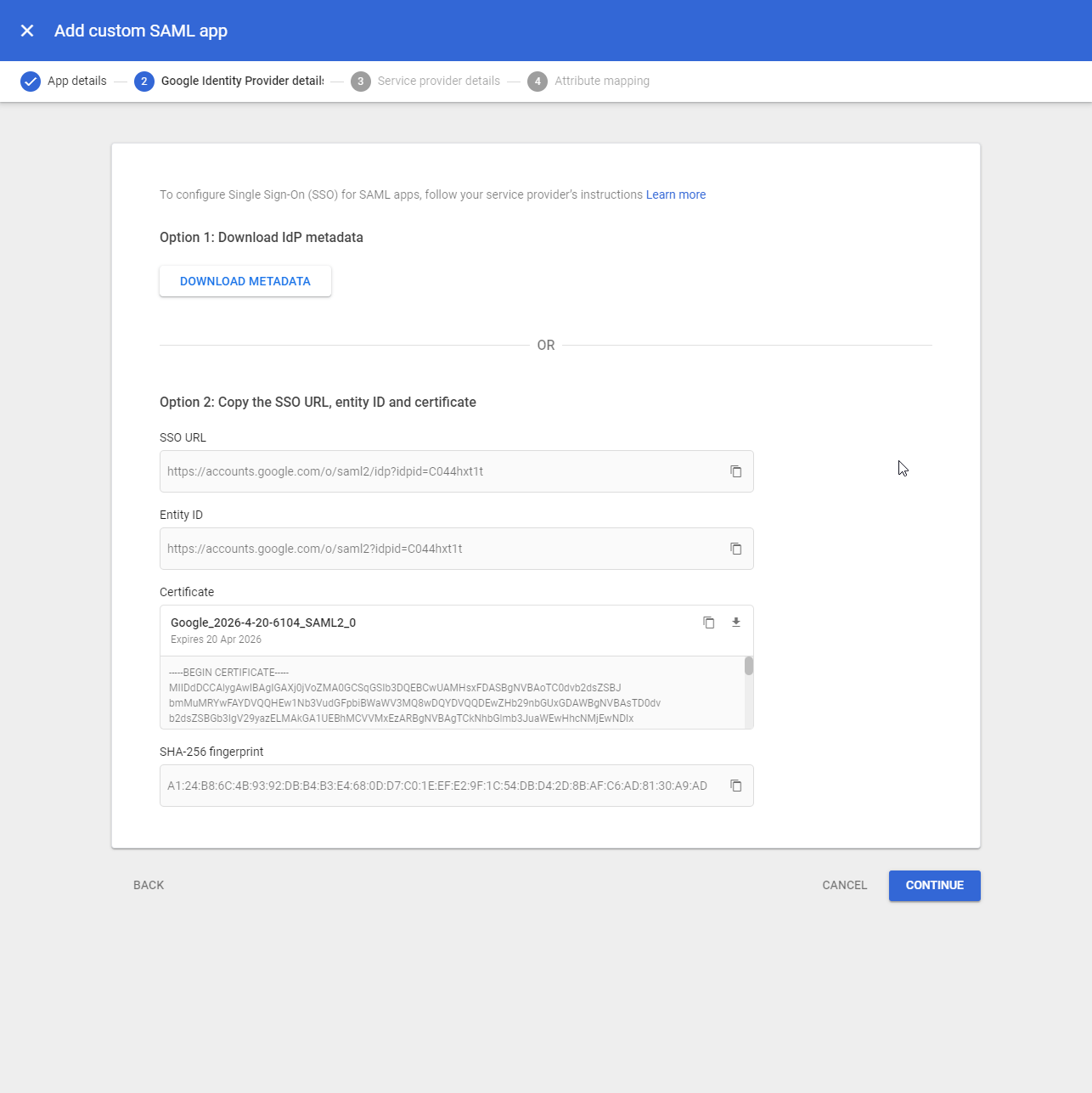
You will need to enter information from GSuite into the XSplit Team License Manager's Domain settings:
- Copy and paste the SSO URL from GSuite into the Sign-On URL on XSplit.
- Download the Certificate from GSuite and upload it into the Signing Certificate on XSplit.
- Return to the GSuite Admin tab then click CONTINUE.
- Under Service provider details, copy and paste the following from XSplit:
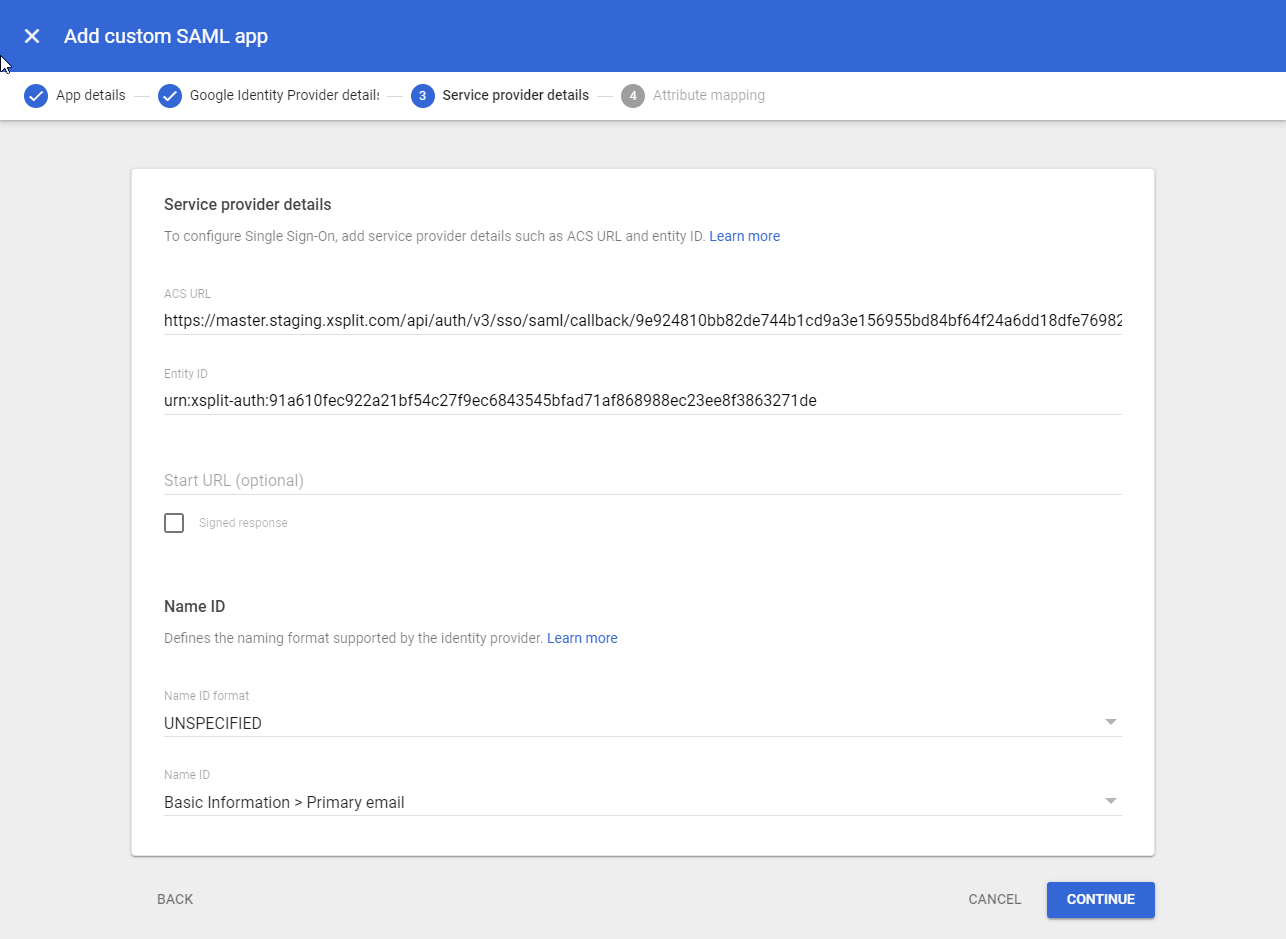
- Copy and paste the Callback URL from XSplit into ACS URL on GSuite.
- Copy and paste the Entity ID from XSplit into Entity ID on GSuite.
- Click CONTINUE.
- Under Attribute Mapping, click ADD MAPPING then select
Primary emailthen map the app attributes toemail.
- Click FINISH to complete adding the app.
3. Finalizing SSO setup
Once the XSplit app integration is done in GSuite:
- Click on View details on the User access pane.
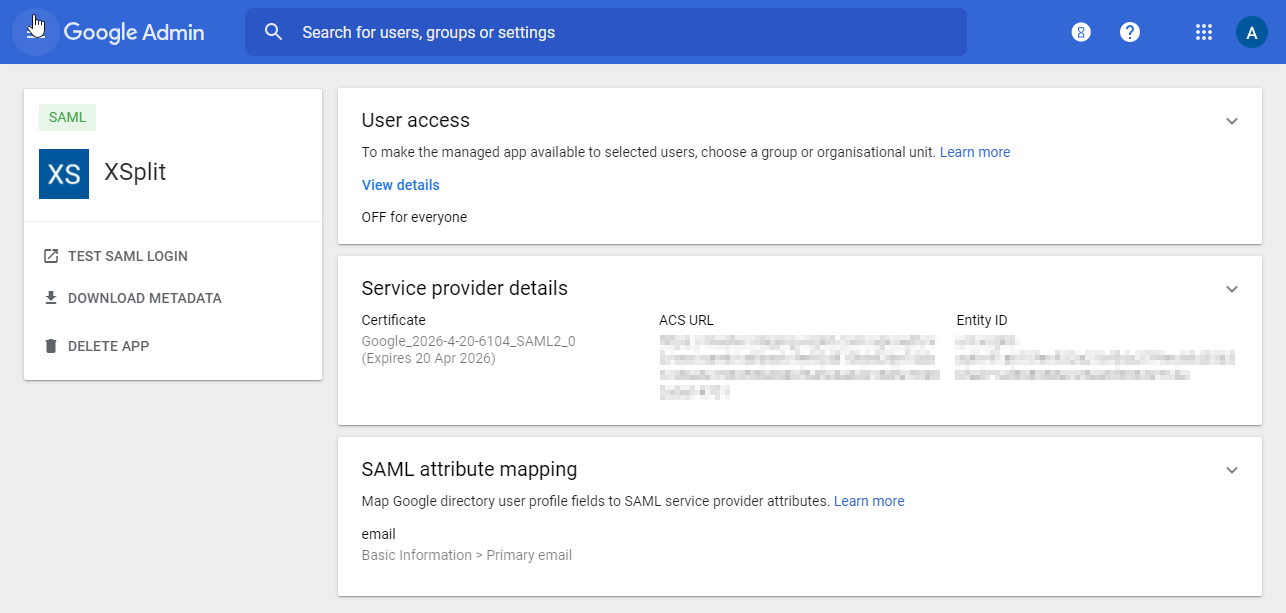
- Under Service status, select ON for everyone then click SAVE.
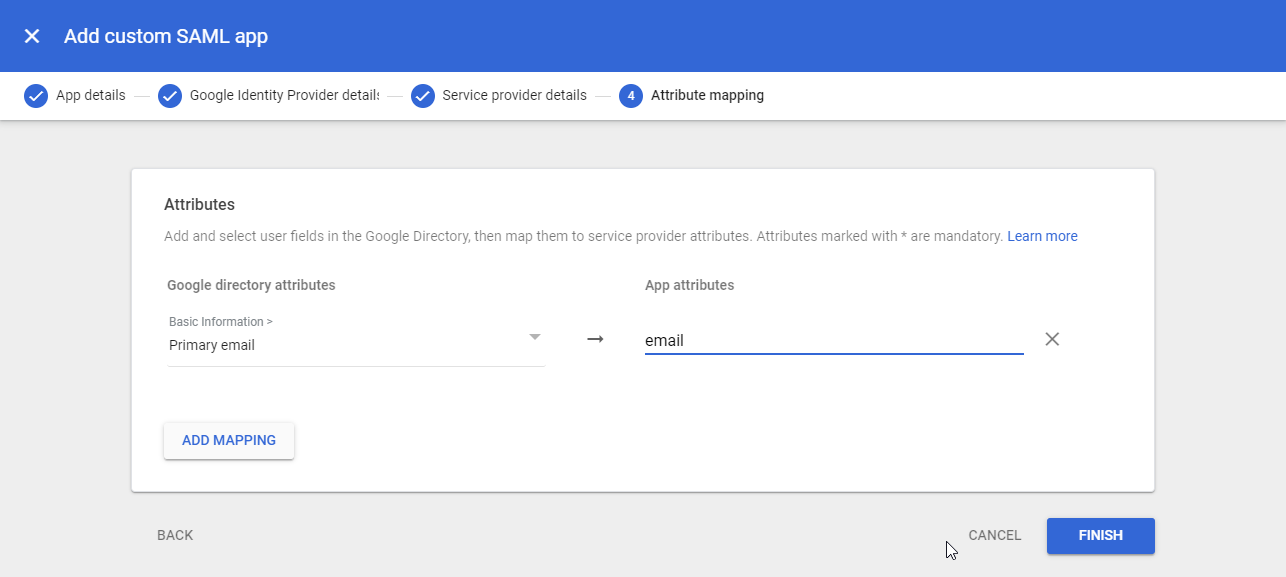
not_a_saml_app or app_not_configured_for_user until the configuration has manifested.Updated on: 15/10/2025
Thank you!